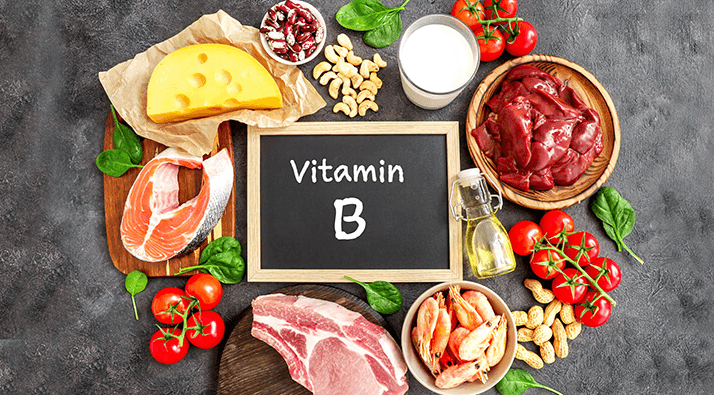Food:34tflmxkdx4= Vitamin B

Vitamin B is a collective term for a group of eight essential water-soluble vitamins that significantly contribute to various bodily functions, including energy metabolism and neurological health. While these vitamins are found in a variety of foods, understanding their specific roles and the consequences of deficiencies is critical for maintaining overall well-being. As the demand for nutrition awareness grows, it becomes imperative to explore which Food:34tflmxkdx4= Vitamin B sources are most beneficial and how they can impact health outcomes. What implications do these dietary choices hold for long-term health?
Importance of Vitamin B
Vitamin B, a collective term for a group of water-soluble vitamins, plays a crucial role in maintaining various physiological functions essential for overall health.
Key Vitamin B sources include whole grains, meats, eggs, and dairy products.
A deficiency in these vitamins can lead to serious health issues, such as anemia and neurological disorders, emphasizing the importance of a balanced diet to prevent such deficiencies.
Types of Vitamin B
The various types of B vitamins, collectively known as the B-complex group, encompass eight distinct water-soluble vitamins, each with unique functions and health benefits.
These include B1 (thiamine), B2 (riboflavin), B3 (niacin), B5 (pantothenic acid), B6 (pyridoxine), B7 (biotin), B9 (folate), and B12 (cobalamin).
Insufficient Vitamin B sources can lead to Vitamin B deficiency, resulting in various health issues, highlighting their essential role in overall well-being.
Read Also Food:-Jzof9j9on0= Trader Joe’s
Foods High in Vitamin B
A diverse array of foods can provide ample sources of B vitamins, crucial for maintaining optimal health.
Key B vitamin sources include whole grains, legumes, nuts, seeds, dairy products, and leafy greens.
Regular consumption of these foods can help prevent Vitamin B deficiencies, which may lead to various health issues.
Emphasizing a balanced diet rich in these nutrients supports overall well-being and vitality.
Benefits of Vitamin B
Critical to numerous bodily functions, B vitamins collectively contribute to overall health and well-being.
These vitamins play essential roles in energy metabolism, neurological function, and red blood cell production.
Vitamin B deficiency can lead to various health issues, underscoring the importance of adequate intake from diverse Vitamin B sources such as whole grains, meat, eggs, and leafy greens to maintain optimal physiological function.
Conclusion
In the intricate tapestry of human Food:34tflmxkdx4= Vitamin B serves as a vital thread, weaving together the functions of energy metabolism, red blood cell production, and neurological integrity. Each type of Vitamin B represents a unique strand, contributing to the overall resilience of the system. Emphasizing a diet rich in these essential nutrients ensures that the body remains robust and adaptable, safeguarding against the shadows of deficiency that threaten well-being. Thus, nurturing Vitamin B intake symbolizes a commitment to enduring health.





